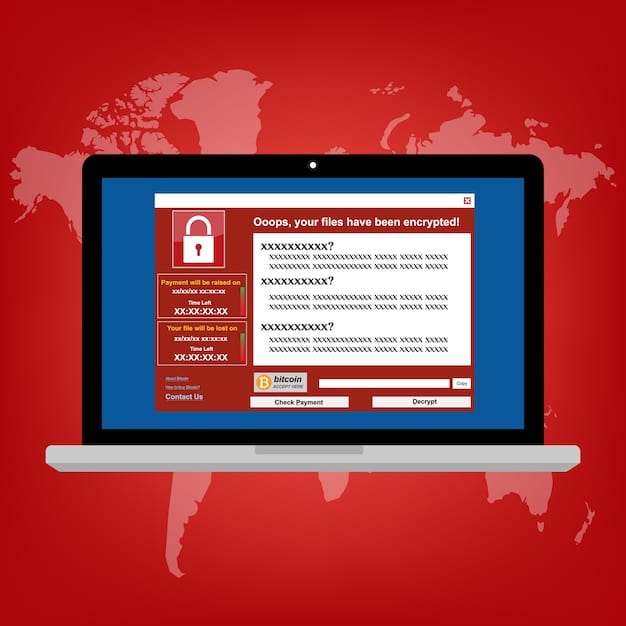VPNs: True Privacy Shield or Just a Security Illusion?

VPNs: Are They Really Protecting Your Privacy, or Just Giving You a False Sense of Security? While VPNs offer enhanced security by encrypting your internet connection and masking your IP address, their effectiveness in protecting your privacy depends on several factors, including the VPN provider’s policies and potential vulnerabilities.
In today’s digital age, concerns about online privacy are more prevalent than ever. Many users turn to VPNs, or Virtual Private Networks, hoping to shield their data from prying eyes. But the question remains: VPNs: Are They Really Protecting Your Privacy, or Just Giving You a False Sense of Security? Let’s delve into the reality of VPN protection.
Understanding VPNs: What They Do and How
At their core, VPNs are designed to create a secure connection between your device and the internet. This process involves encrypting your data, making it unreadable to anyone who might be intercepting it, and masking your IP address, which helps to keep your location and identity private. However, the effectiveness of a VPN goes beyond these basic functions.
The Basic Functions of a VPN
A VPN primarily focuses on encrypting data and hiding your IP address. Encryption scrambles your data, preventing hackers from reading it. Masking your IP address makes it difficult to trace your online activities back to you. But depending on the provider, there are limitations.
- Data Encryption: Securing your data from interception.
- IP Masking: Hiding your actual IP address.
- Tunneling: Creating a secure path for your data.
While these functions provide a significant degree of security, they are not foolproof. Understanding the nuances of how a VPN operates is crucial for assessing its effectiveness.

VPNs can indeed enhance your online security, however it’s important to note that VPNs provide more protection on the application level. Your ISP can only see you’re connected to the VPN server but not the specifics of any traffic.
Evaluating VPN Privacy Promises: The Fine Print
One of the most critical aspects of choosing a VPN is understanding its privacy policy. VPN providers often make bold claims about protecting your data, but the reality can vary significantly. It’s essential to read the fine print and look for providers that have a proven track record of respecting user privacy.
Logging Policies: No-Logs vs. Some Logs
A crucial element is the logging policy of the VPN provider. Some VPNs claim to have a “no-logs” policy, meaning they don’t track or store any information about your online activities. Others may keep some logs, such as connection times or bandwidth usage. It is important to evaluate which will be best for your purposes.
- No-Logs Policy: The VPN provider does not track or store your online activity.
- Some Logs Policy: The VPN provider tracks minimal data.
- Potential Risks: The VPN provider shares data with Law Enforcement.
Be ware of overstated claims and check a third party has audited the VPN’s logs policy. This is a good way to make sure the provider is being truthful.
If a VPN provider claims to be “no-logs’”, proceed cautiously if they have a US headquarters. US-based VPNs can share some data with law enforcement as they are covered by US jurisdiction.
VPN Vulnerabilities: Points of Failure
Like any security tool, VPNs are not immune to vulnerabilities. There are several potential points of failure that can compromise your privacy, even when using a VPN. Understanding these vulnerabilities is essential for taking steps to mitigate them.
DNS Leaks and WebRTC Leaks
One of the most common vulnerabilities is DNS leaks. When you visit a website, your computer sends a request to a DNS server to translate the website’s domain name into an IP address. A DNS leak occurs when these requests are not routed through the VPN, revealing your actual IP address to your ISP. WebRTC leaks are another potential issue, as WebRTC is a technology that can expose your IP address even when using a VPN.
To guard against these risks, there are some simple checks and changes you can make:
- Regular VPN tests: Perform regular DNS leak tests.
- Use browser extensions: Browser extensions can disable WebRTC.
- Check your VPN: Verify your VPN’s security settings.
It is imperative to be vigilant and regularly check the security settings of your VPN to prevent exposure.

Jurisdiction and VPN Providers: Where They Are Based Matters
The jurisdiction in which a VPN provider is based can have a significant impact on your privacy. Some countries have strict data retention laws and strong surveillance agencies, which can compel VPN providers to hand over user data.
Data Retention Laws and Surveillance Agencies
Countries like the United States and those in the European Union have data retention laws that may require VPN providers in those countries to store user data for a certain period. Additionally, these countries have strong surveillance agencies that can pressure VPN providers to cooperate with investigations. In contrast, countries like Switzerland and Panama have more favorable privacy laws.
The choice of jurisdiction can have legal and political ramifications. Some countries like Switzerland and Panama have a more favourable outlook to privacy.
- Privacy Laws: Research what Privacy Laws exist in the VPN’s headquarters.
- Avoid: Countries with mandatory data retention requirements.
- Consider: Switzerland and Panama for the VPN’s headquarters.
Carefully assess the political, legal and cooperate agenda depending on the country the VPN is based in.
User Behavior and VPN Effectiveness: Your Role in Privacy
The end user and their internet behaviour may influence the overall effectiveness of a VPN. No matter how reliable a VPN may be, user slip-ups can compromise online actions.
Safe Browsing Practices
Even with a VPN, practising safe browsing behaviours remains crucial in ensuring that your online data is private and secure. To strengthen your privacy and security, stay wary when using internet services and follow these safe browsing practices:
- Be wary of Phishing scams: Phishing Scams are a continuous and common online threat.
- Use HTTPS websites: Secure yourself by making sure to always use HTTPS websites.
- Install Security Extensions: Bolster your security with ad blockers and script blockers.
VPNs, while helpful, work best with safe internet practices. Make sure that you’re taking the right measures to keep your online presence as secure as possible.
The Future of VPNs and Digital Privacy
As digital privacy concerns continue to grow, the role of VPNs is likely to evolve. New technologies and regulations may impact the way VPNs operate and the level of privacy they can provide. Staying informed about these developments is essential for making informed decisions about your online security.
Emerging Technologies and Regulations
Several emerging technologies could shape the future of VPNs. Decentralized VPNs, which are based on blockchain technology, offer a more distributed and potentially more secure way to protect your privacy. Additionally, new regulations like the General Data Protection Regulation (GDPR) are forcing companies to be more transparent about how they collect and use user data.
New technologies such as decentralised VPN’s built on blockchain are emerging. These offer a decentralised more secure way to provide security and stay confidential.
- Consider User Behaviour: User behaviour may influence the overall effectiveness of a VPN.
- Safe Browsing: Practicing safe internet usage is useful in ensuring that your online data is private.
As technology changes, it is important to note the effectiveness of a VPN. If you are unsure always refer to online sources and check a professional.
| Key Point | Brief Description |
|---|---|
| 🔑 Encryption | VPNs encrypt your internet traffic, making it unreadable to third parties. |
| 🌍 Location Masking | VPNs mask your IP address, hiding your actual location. |
| 🛡️ Logging Policies | Choose VPNs with strict no-logs policies for maximum privacy. |
| ⚠️ VPN Vulnerabilities | Be aware of DNS and WebRTC leaks that can compromise your privacy. |
FAQ
▼
A VPN, or Virtual Private Network, encrypts your internet connection and hides your IP address. This creates a secure tunnel for your data, protecting it from being intercepted by third parties and masking your location.
▼
No, VPNs are not all the same. Some VPN providers may log user data, have weak security practices, or be based in countries with unfavorable privacy laws. Research and choose a reputable VPN with a strong privacy policy.
▼
While VPNs enhance your security, they’re not a silver bullet. You still need to practice safe browsing habits, use strong passwords, and be cautious of phishing scams. VPN’s are helpful, work best combined with safe internet practices.
▼
A “no-logs” policy means that the VPN provider does not track or store any information about your online activities, such as the websites you visit or the files you download. This helps ensure your privacy.
▼
You can use online tools to check if your VPN is masking your IP address and preventing DNS leaks. These tests will verify that your VPN is routing your traffic through its servers and protecting your identity.
Conclusion
In conclusion, while VPNs offer a valuable layer of security and privacy, they are not a panacea. Their effectiveness depends on choosing a reputable provider, understanding potential vulnerabilities, and practicing safe browsing habits. Stay informed, be vigilant, and make informed decisions to protect your digital privacy.





